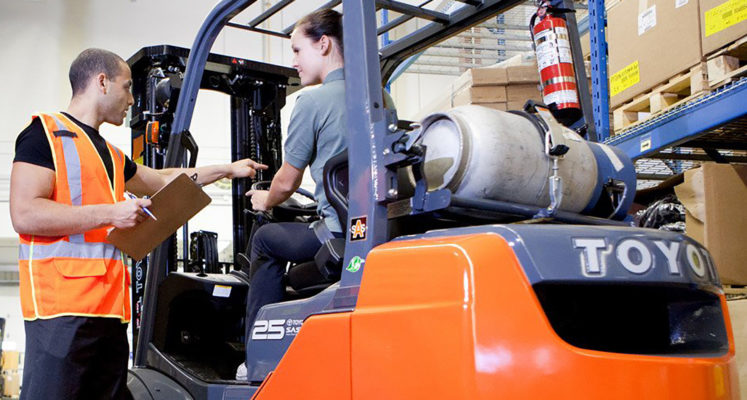Forklift training programs are essential components for ensuring safety and efficiency in various industrial operations where handling, moving, and storing materials using forklifts are integral tasks. Proper training not only equips operators with necessary skills but also significantly reduces the risk of workplace accidents and injuries. This blog post aims to guide you through some of the best forklift training programs available, providing comprehensive reviews to help you choose the right training solution tailored to your needs.
Choosing the right forklift training program is crucial for compliance with occupational safety standards and enhancing operational productivity. Let’s delve into different aspects of these programs, distinguish their unique offerings, and evaluate how effectively they meet industry requirements and personal competence goals.
Comprehensive Coverage & Certification
Finding a forklift training program that offers extensive coverage of all necessary safety protocols, operating procedures, and maintenance checks is fundamental. Programs like the National Safety Council’s Forklift Training courses present a robust curriculum that emphasizes both theoretical knowledge and practical skills development. Furthermore, they ensure that trainees emerge with certifications recognized across various industries, which is pivotal in securing employment or compliance with regulatory standards. For more insights into the significance of comprehensive training, visit https://marketbusinessnews.com/the-importance-of-having-forklift-training/388121/.
This aspect is vital as it ensures that operators are not just capable of driving forklifts but are also knowledgeable about daily checks and long-term upkeep which prevent mechanical failures or hazardous incidents.

Accessibility and Flexibility
The availability of forklift training programs that accommodate varying schedules and learning paces is another key component to consider when choosing a provider. Some top-rated programs offer online modules combined with on-site practical assessments, catering to those who might need to balance training with ongoing work commitments. For instance, platforms like Forklift Academy offer self-paced online courses which can be accessed anywhere, complemented by hands-on training sessions arranged at convenient locations.
The flexibility offered by these programs makes them an excellent option for both individuals and businesses looking to certify multiple employees without substantial downtime or disruption to their operations.
Instructor Expertise and Support
The quality of instruction in any educational program plays a critical role in learner success, and this is particularly true for something as specialized as forklift operation. Accredited programs such as those offered by OSHA Training Institute Education Centers feature experienced instructors who bring real-world expertise into their teaching practices. Such instructors offer invaluable insights into the subtleties of effective forklift usage and safety management.
Beyond just teaching, top-quality trainers offer ongoing support to ensure learners can apply their knowledge confidently and are prepared to handle diverse scenarios they might face in their work environment.
Cost-Effectiveness
While investing in high-quality training inevitably incurs costs, some programs stand out by offering exceptional value without compromising on the comprehensiveness or quality of education they provide. Look for programs that include post-certification support or job placement assistance as part of the package. Programs from providers like Liftow Limited provide cost-effective training solutions while also offering budget-friendly options for businesses seeking to train groups of employees.
Evaluating the ROI considering reduced accident rates and increased productivity post-training can significantly outweigh initial expenditure on well-conceived training courses.
Real-World Application & Continuous Learning
The best forklift training programs do not end at certification; they incorporate elements of continuous learning to adapt to evolving industry standards and technological advancements in material handling. Programs should include advanced simulators or virtual reality (VR) tools to give operators a taste of real-world scenarios in a controlled setting. This practice helps bridge the gap between classroom knowledge and field operation.
Additionally, refresher courses or annual check-ins can keep skills sharp while ensuring compliance with the latest health and safety regulations—a feature provided by comprehensive providers like ProLift Industrial Equipment.
In conclusion, selecting the best forklift training involves considering several factors—program breadth, accessibility, instructor quality, cost-effectiveness, and opportunities for continuous learning. By prioritizing these aspects, businesses and individual learners can benefit from enhanced skills, improved safety standards, and greater operational efficiency in their workplace environments.
Remember that thorough research on potential training programs is the first step toward safeguarding your operations against unforeseen challenges while boosting overall productivity through well-trained staff.

